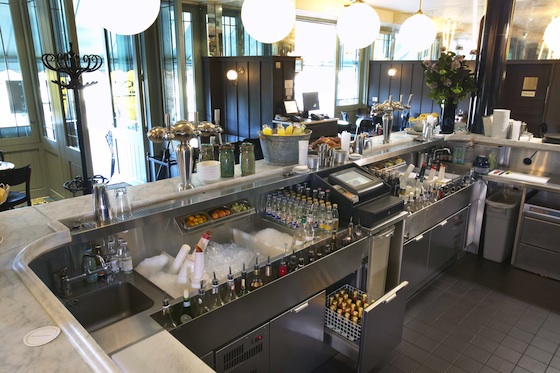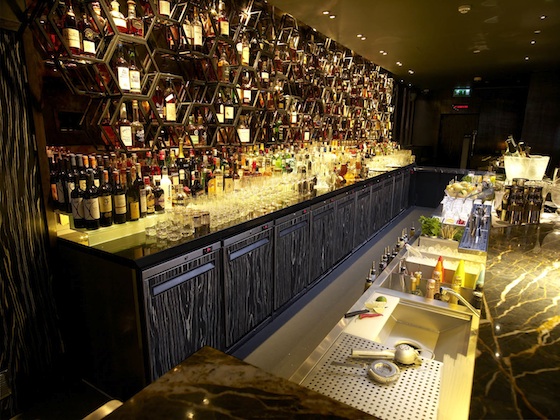Many bars underperform unnecessarily which can be due to a multitude of factors – location, design, staff training or product offering, however, often this can be addressed through design as it can be the bar itself where problems lie.
The bar is the focus for any venue and should be designed to fulfill its potential – it is the shop window and must have the right tools to deliver operationally. Get this right and the rewards will follow.
You can create a fantastic looking bar, but it will fail if it hasn’t been designed from an operational perspective at the outset. A customer’s experience of a bar is not just based on how it looks after all but on the service provided by the bar staff.
If you’re served slowly by flustered staff, you don’t enjoy your surroundings and consequently will spend less. Conversely, customer focused bar staff can engage positively encouraging uplift in drinks and making the experience enjoyable.

High Road House, Chiswick, London
Some of the telltale signs that give away when a bar isn’t operating properly include slow service, staff colliding with each other, dirty glasses piling up on the bar counter and wait staff collecting drinks and food orders where customers congregate.
Good bar design on the other hand starts with what needs to be achieved; how a bar functions and how it looks must be developed in tandem from the outset. Architectural elements within a bar can have a big impact visually and operationally, for example a structural pillar within the bar area must be considered aesthetically and operationally to ensure it doesn’t hinder how the bar is seen, approached or works.
Having the right tools and ingredients in the correct place allows bar staff to focus on serving great drinks and providing customers with a seamless service.
So think about who you want to attract and plan your drinks list, before designing your bar. How will the bar operate – is it open day and night, servicing different needs and moods; will you offer food from the bar? Will coffees and teas be served from the bar? How will the tables be serviced? Will the bar need to dispense to a restaurant? How many people will be working behind the bar? Will the dirty glasses, crockery and cutlery come back to the bar? Make sure your design brief identifies the likely functions of the bar from the outset.
A well planned bar will reduce the number of bar staff required – don’t be tempted to cram in too many workstations - you are better limiting these and creating properly set-up stations which will work harder. Create different work zones for service, dispense, coffee and wash-up and plan where dirty glasses will be returned to the bar.

Salvatore at Playboy, The Playboy Club in Mayfair, London
The front bar’s focus should be on preparation and service; the back bar’s should be on promotion, display and ambience.
Lighting has a key role to play too. Ensure that it meets operational needs and the overall design. Lighting can be used to establish different moods in a multi-purpose bar and facilitate the transition from morning, lunch and afternoon trade through to a more upbeat evening atmosphere, while effective task lighting is essential for bar staff.
Bars not designed to address a site’s issues and functional requirements impact on the number of customers who can be served, the time in which they can be served and the quality of the service provided. In short, a bar’s potential is determined before the first drink is even served.
Simon Knowles is director of Cantilever Bars, which designs and manufacturers bars for hotels, bar operators, catering companies, drinks brands and arts/leisure organisations including Diageo, Bacardi, Soho House, Carluccios and Hilton Worldwide




